
By Afton Rorvik | Twitter: @AftonRorvik
When we moved into our new neighborhood, I did not know what to expect. Would we make friends and find connection?
I grew up on two acres of land in what was then rural Colorado, surrounded by German Shepherds, tomato plants, Russian Olive trees, gophers, and a variety of snakes and mice. Our nearest neighbors—mangy sheep and burly riding horses—didn’t bother us and we didn’t bother them. Of course, the barbed-wire fences helped.
When I moved to a Chicago suburb to attend school, I had no idea I would still be in this suburb decades later. Far away from rural Colorado, I now live next to people, not sheep and horses.
My husband and I and our two kids had only lived in our new house in a Chicago suburb for a few days when several women knocked on our door and invited me to go to a movie with them. I declined, explaining how overwhelmed I felt with the details of moving. My neighbors persisted. A block party. An open house. Coffee at the little shop down the hill.
So very different than living next to sheep and horses.
Nancy lived at the heart of our suburban neighborhood although not exactly at the geographic center. She came early to every neighborhood event and left late. Her mac and cheese had long ago become standard fare at all potlucks. She knew everyone, and everyone knew her. She loved to walk through our streets, usually with her niece’s Jack Russell Terrier in tow. Walking, actually, does not describe what Nancy did. Her meanderings more resembled a halting waltz. She glided slowly, gracefully down the sidewalk until she spotted a neighbor. Then she stopped. Immediately.
The seasons came and went. I started to accumulate phone numbers and began to learn names. I had several conversations with Nancy and other neighbors. Our daughter memorized the names of all the dogs.
Then one winter, in the early hours of dawn, the piercing sound of an ambulance shook our neighborhood. As neighbors woke up that morning, news spread quickly: Nancy, only 49, had had a heart attack. The paramedics had not been able to spare her life.
I did not anticipate my reaction to this news: I sobbed.
I did not know Nancy well, and yet I did. I had come to depend on her mac and cheese, her face-splitting grin, and her probing questions. I loved her stories of talking about Jesus with people in line at the grocery store or Jehovah’s Witnesses who knocked at her door.
And now?
Bev had already planned her annual Christmas open house for the day of Nancy’s funeral. We all discussed canceling it, but then someone voiced our collective thoughts, “No. We need to be together. Nancy would want it that way.”
And so we celebrated Nancy’s life and faith at her funeral. The church oozed with friends and families. We carpooled there and back. We gravitated to Bev’s house where we all listened for Nancy’s heart-felt laugh and distinctive voice. We talked of her mac and cheese as if it had been some rare delicacy. We remembered. We hurt. Together.
I did not know that this happened in neighborhoods.
How thankful I am to live near people—these people—who have taught me the great joy of living connected, living in community.
About Afton:
 Afton Rorvik savors words, flavored coffee, time outside, and living connected. Although an introvert, she has come to realize that what really matters in life is people and faith in Jesus, which gives her strength and courage to live connected. She is the author of Storm Sisters: Friends for All Seasons. Follow her at her website, www.aftonrorvik.com, Facebook and Twitter.
Afton Rorvik savors words, flavored coffee, time outside, and living connected. Although an introvert, she has come to realize that what really matters in life is people and faith in Jesus, which gives her strength and courage to live connected. She is the author of Storm Sisters: Friends for All Seasons. Follow her at her website, www.aftonrorvik.com, Facebook and Twitter.
***
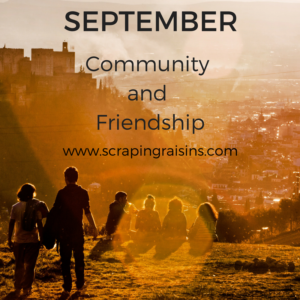 This month on Scraping Raisins we are talking about Friendship and Community. Be sure and subscribe to my newsletter or follow on social media so you don’t miss a post!
This month on Scraping Raisins we are talking about Friendship and Community. Be sure and subscribe to my newsletter or follow on social media so you don’t miss a post!
The theme for October is Practical and Impractical Hospitality, so visit the submissions guidelines if you’re interested in guest posting! New and seasoned writers welcome;-)
Sign up for the (occasional) Mid-month Digest and the (loosely) “end of the month” Secret Newsletter for Scraping Raisins Here:
*This post contains Amazon affiliate links.
Photo by Daria Nepriakhina on Unsplash





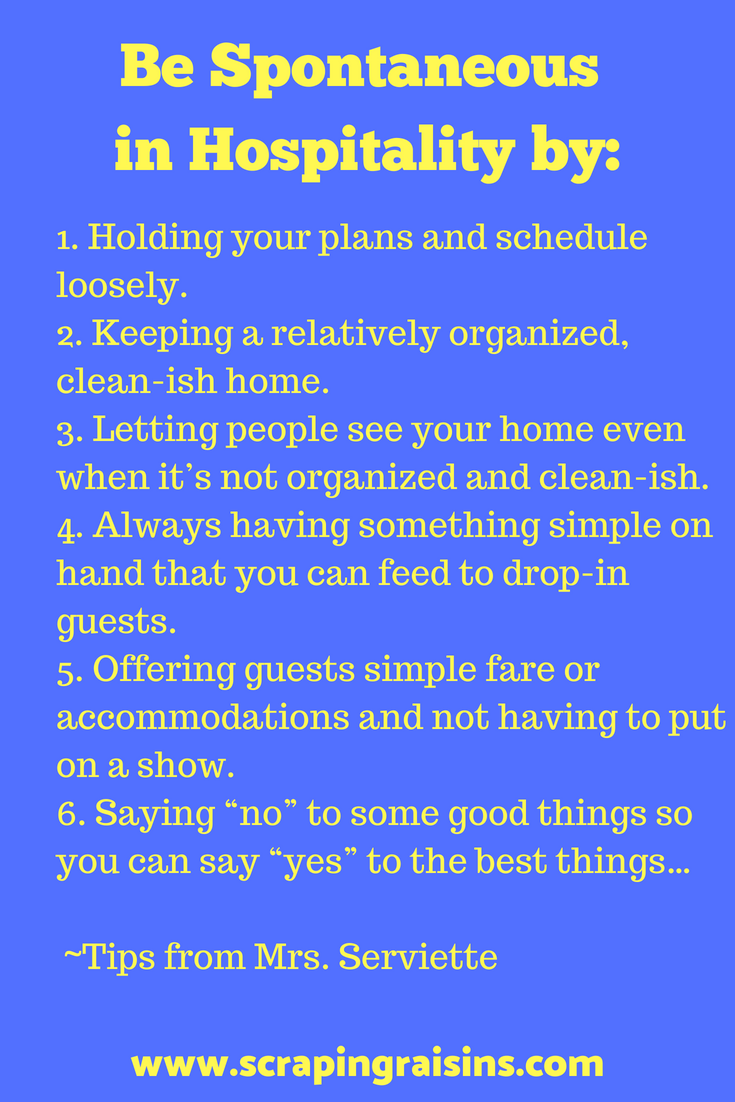
 Mrs. Serviette and her husband, Mr. Serviette, are North Americans living in Germany. They enjoy opening their home to people of all different cultures, backgrounds and religions. Their adventures in hospitality inspired Mrs. Serviette to to start her blog, The Serviette, which encourages people to share their tables in a way that bridges cultural and religious gaps, shows creativity, and serves others. Follow her at her
Mrs. Serviette and her husband, Mr. Serviette, are North Americans living in Germany. They enjoy opening their home to people of all different cultures, backgrounds and religions. Their adventures in hospitality inspired Mrs. Serviette to to start her blog, The Serviette, which encourages people to share their tables in a way that bridges cultural and religious gaps, shows creativity, and serves others. Follow her at her  The theme for August is “Homelessness, Refugees & the Stranger,” so send me a post for that, too, if you have a good idea!
The theme for August is “Homelessness, Refugees & the Stranger,” so send me a post for that, too, if you have a good idea! 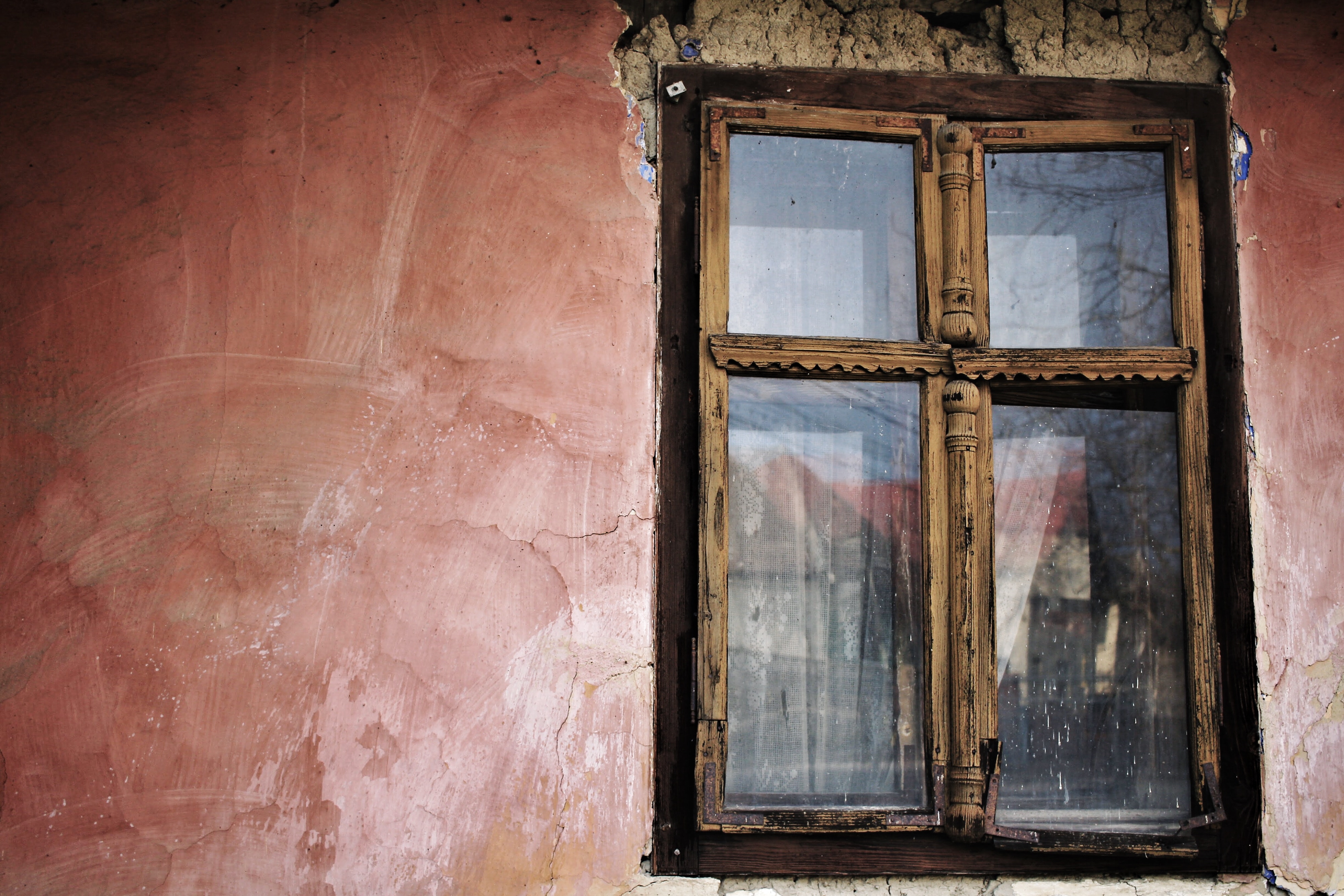

 Kelly Simonsen is a cross-cultural friendship builder, INFJ/Enneagram 4, lover of people, music connoisseur, creative cook, wordsmith, and world traveler with roots in the Pacific Northwest who is learning to live well with chronic pain and exploring how her passions and visions can become realities in her life. However, at the heart of it all, she’s a woman who is learning that the core of her identity is the beloved of God, and that is enough. She writes at
Kelly Simonsen is a cross-cultural friendship builder, INFJ/Enneagram 4, lover of people, music connoisseur, creative cook, wordsmith, and world traveler with roots in the Pacific Northwest who is learning to live well with chronic pain and exploring how her passions and visions can become realities in her life. However, at the heart of it all, she’s a woman who is learning that the core of her identity is the beloved of God, and that is enough. She writes at 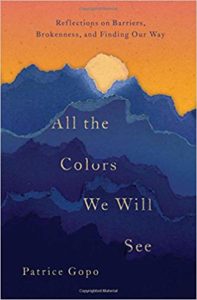 We are giving away a copy of
We are giving away a copy of 

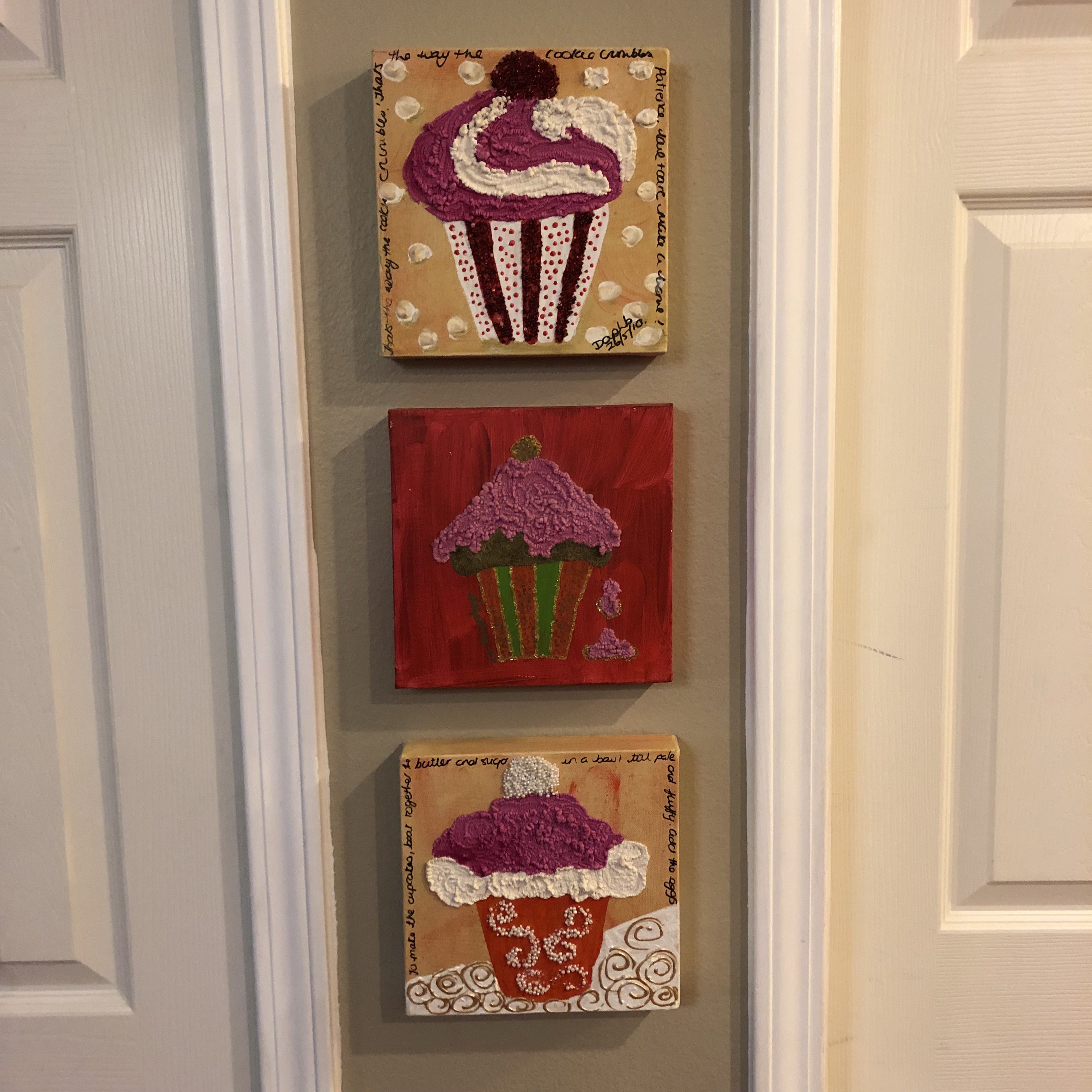
 Patrice Gopo is a 2017-2018 North Carolina Arts Council Literature Fellow. She is the author of All the Colors We Will See: Reflections on Barriers, Brokenness, and Finding Our Way (August 2018), an essay collection about race, immigration, and belonging. Please visit
Patrice Gopo is a 2017-2018 North Carolina Arts Council Literature Fellow. She is the author of All the Colors We Will See: Reflections on Barriers, Brokenness, and Finding Our Way (August 2018), an essay collection about race, immigration, and belonging. Please visit 
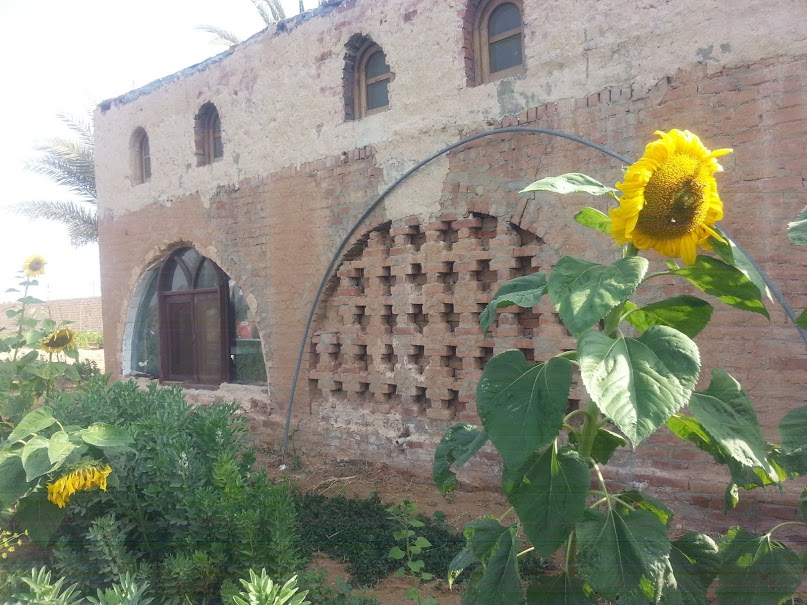
 A Coloradan by birth, Alicia currently lives in Cairo, Egypt with her husband, and three boys three and under. Always a nurse at heart, her impossible 24/7 job these days is keeping her boys alive while trying to learn Arabic, engage with her community, and listen to the stories of the refugees, Egyptians, and expats she is surrounded with. Follow her on Instagram
A Coloradan by birth, Alicia currently lives in Cairo, Egypt with her husband, and three boys three and under. Always a nurse at heart, her impossible 24/7 job these days is keeping her boys alive while trying to learn Arabic, engage with her community, and listen to the stories of the refugees, Egyptians, and expats she is surrounded with. Follow her on Instagram 
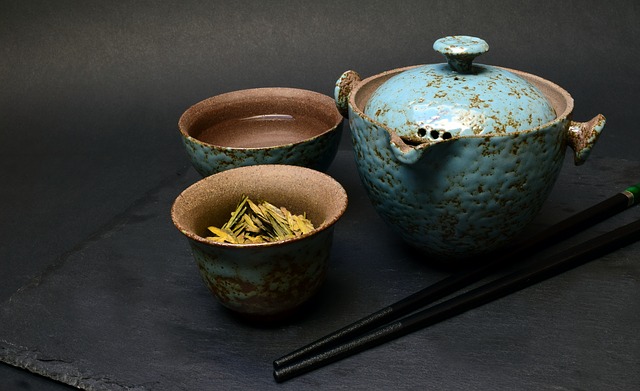
 As a mom, I juggle two different kinds of parenting — long-distance to our 3 adult kids (who are white on the outside but very Chinese on the inside) and our two adopted Chinese boys at home who have special needs. Since being back in the US, my husband has taken up cooking Chinese food, with a specialty of Lanzhou beef noodles (where we used to live and where our boys are from), giving us a taste of “home.” You can follow our story on my
As a mom, I juggle two different kinds of parenting — long-distance to our 3 adult kids (who are white on the outside but very Chinese on the inside) and our two adopted Chinese boys at home who have special needs. Since being back in the US, my husband has taken up cooking Chinese food, with a specialty of Lanzhou beef noodles (where we used to live and where our boys are from), giving us a taste of “home.” You can follow our story on my 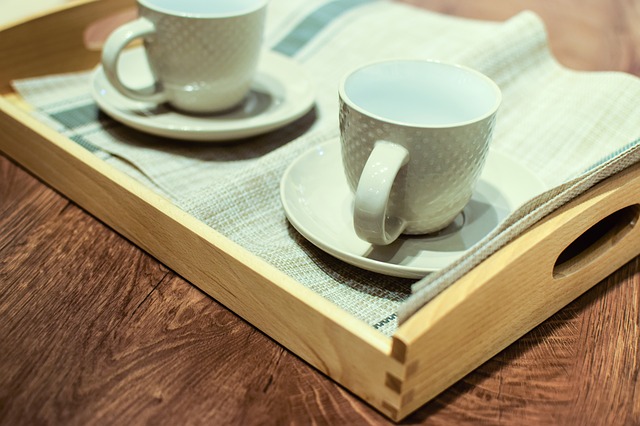
 Anna Moseley Gissing loves words—reading, writing, speaking, teaching, and editing. When she’s not editing books for IVP Academic, you can often find her unpacking or helping her kids with homework. Connect with her on
Anna Moseley Gissing loves words—reading, writing, speaking, teaching, and editing. When she’s not editing books for IVP Academic, you can often find her unpacking or helping her kids with homework. Connect with her on  This concludes our month on the theme “simplify.” Thank you to Anna for guest posting! Our theme for April is “Books and Writing,” and I hope to share my favorite books, podcasts and resources for new writers. I recently signed a book contract, so I am in the thick of it and have many thoughts about the writing process. I’ll also be attending The
This concludes our month on the theme “simplify.” Thank you to Anna for guest posting! Our theme for April is “Books and Writing,” and I hope to share my favorite books, podcasts and resources for new writers. I recently signed a book contract, so I am in the thick of it and have many thoughts about the writing process. I’ll also be attending The 


